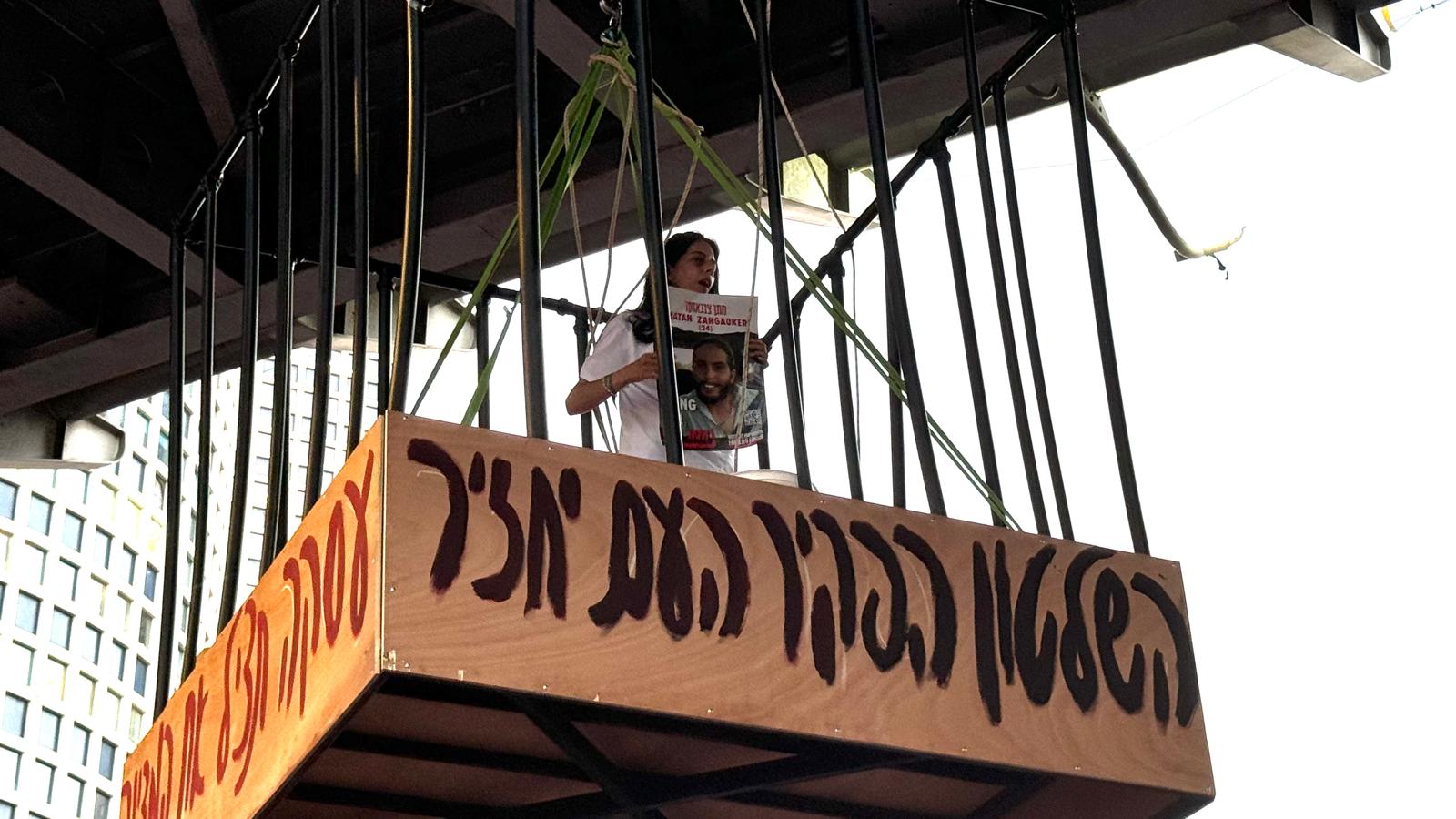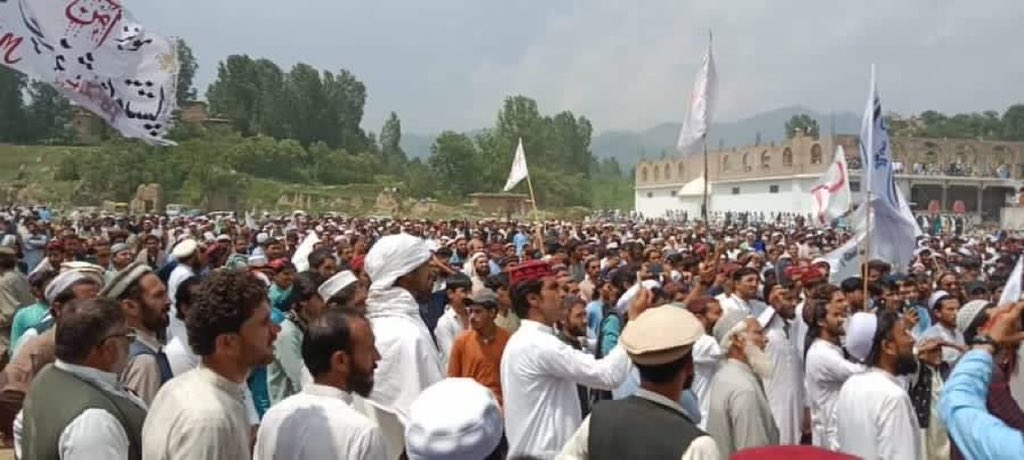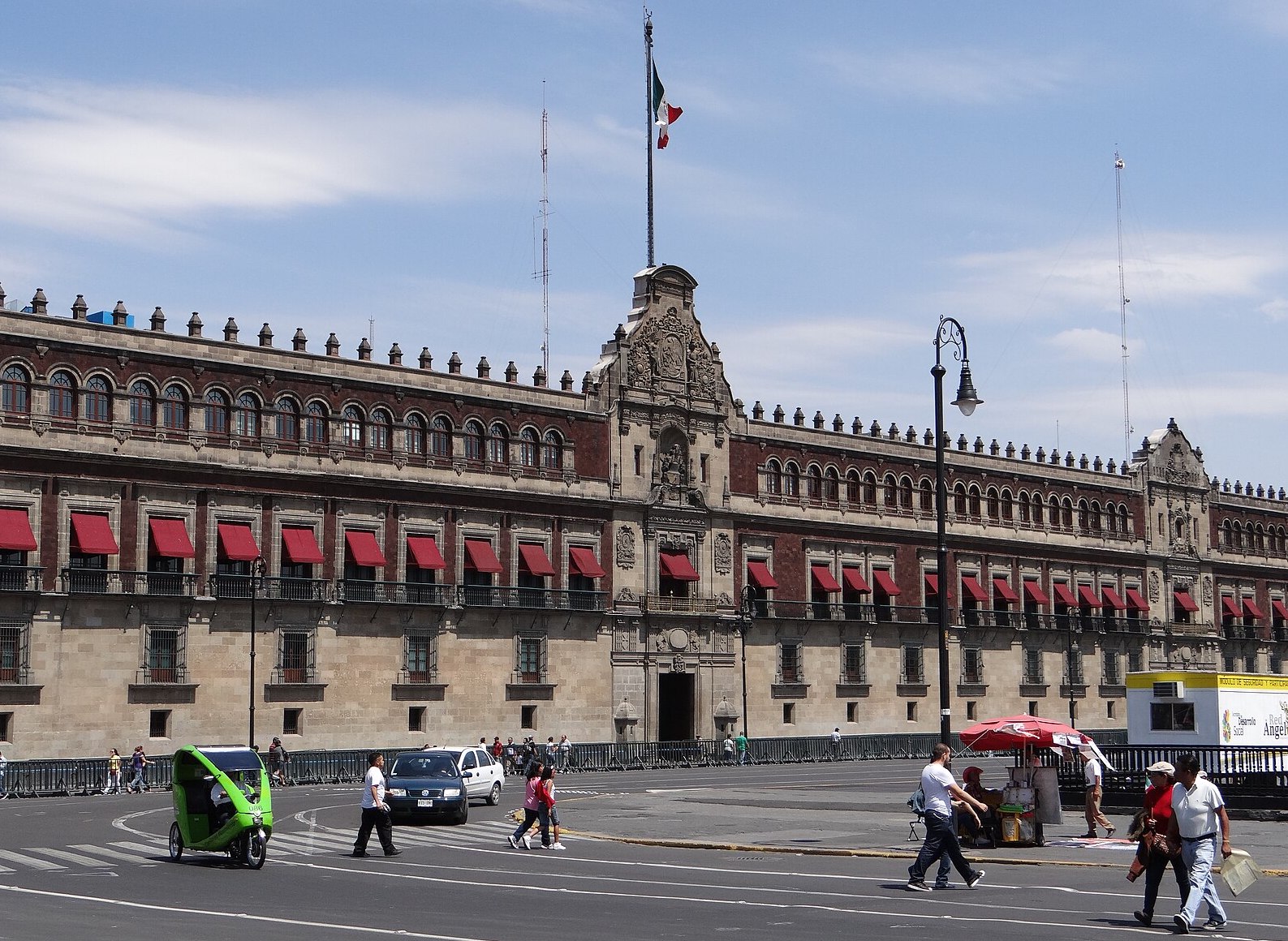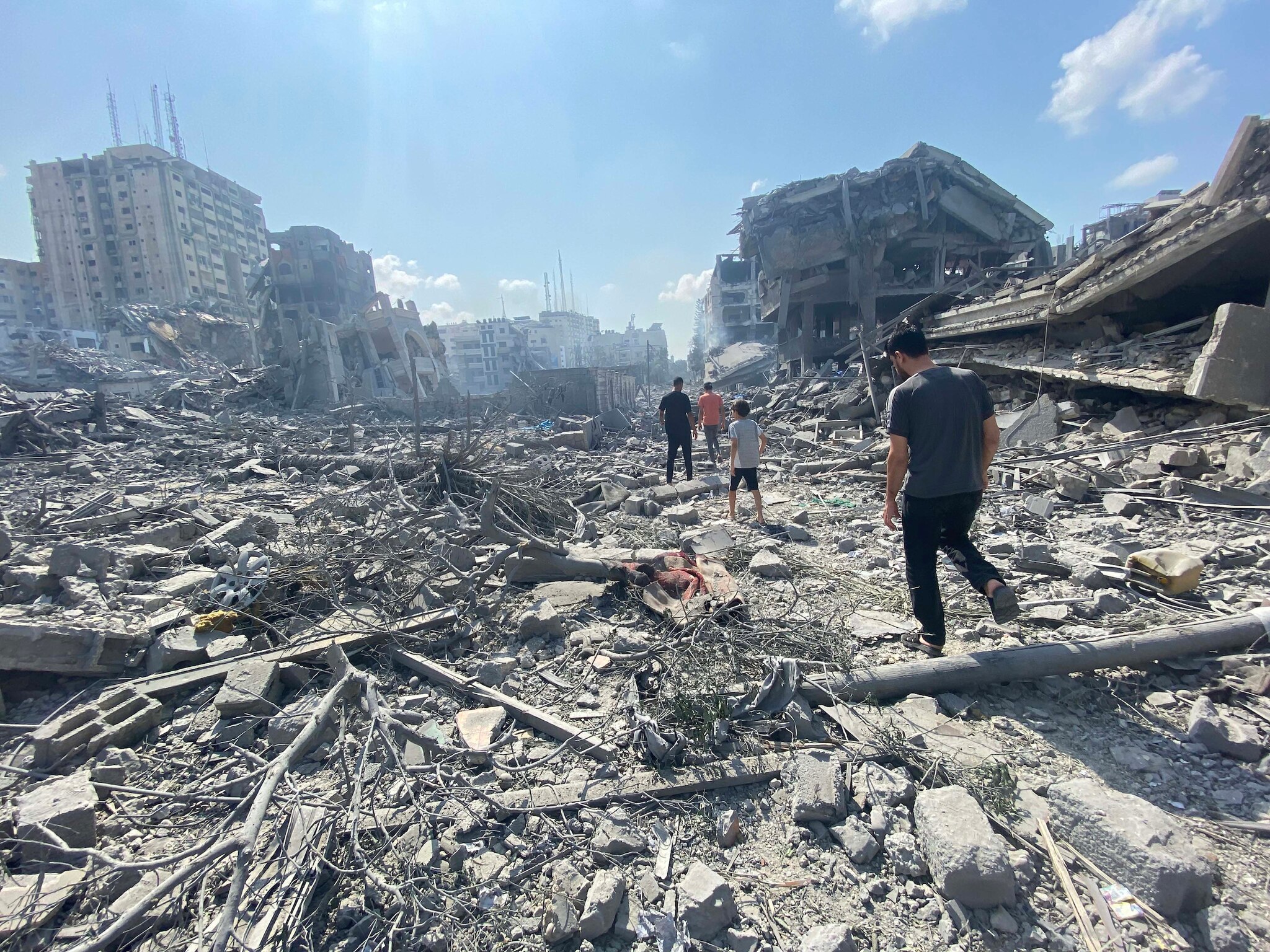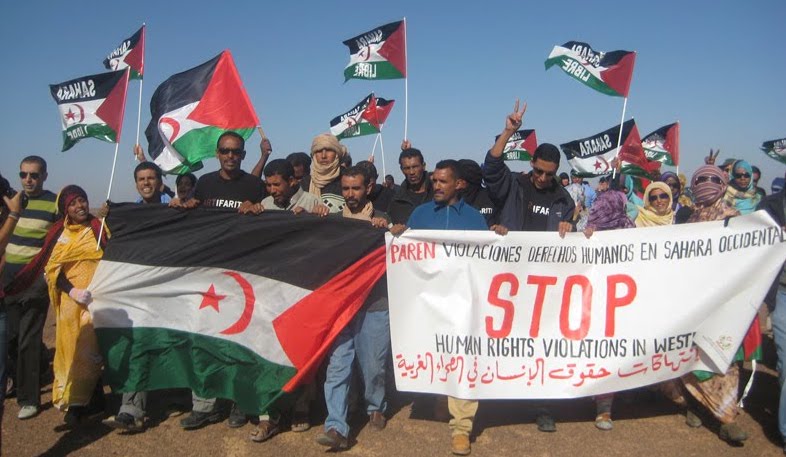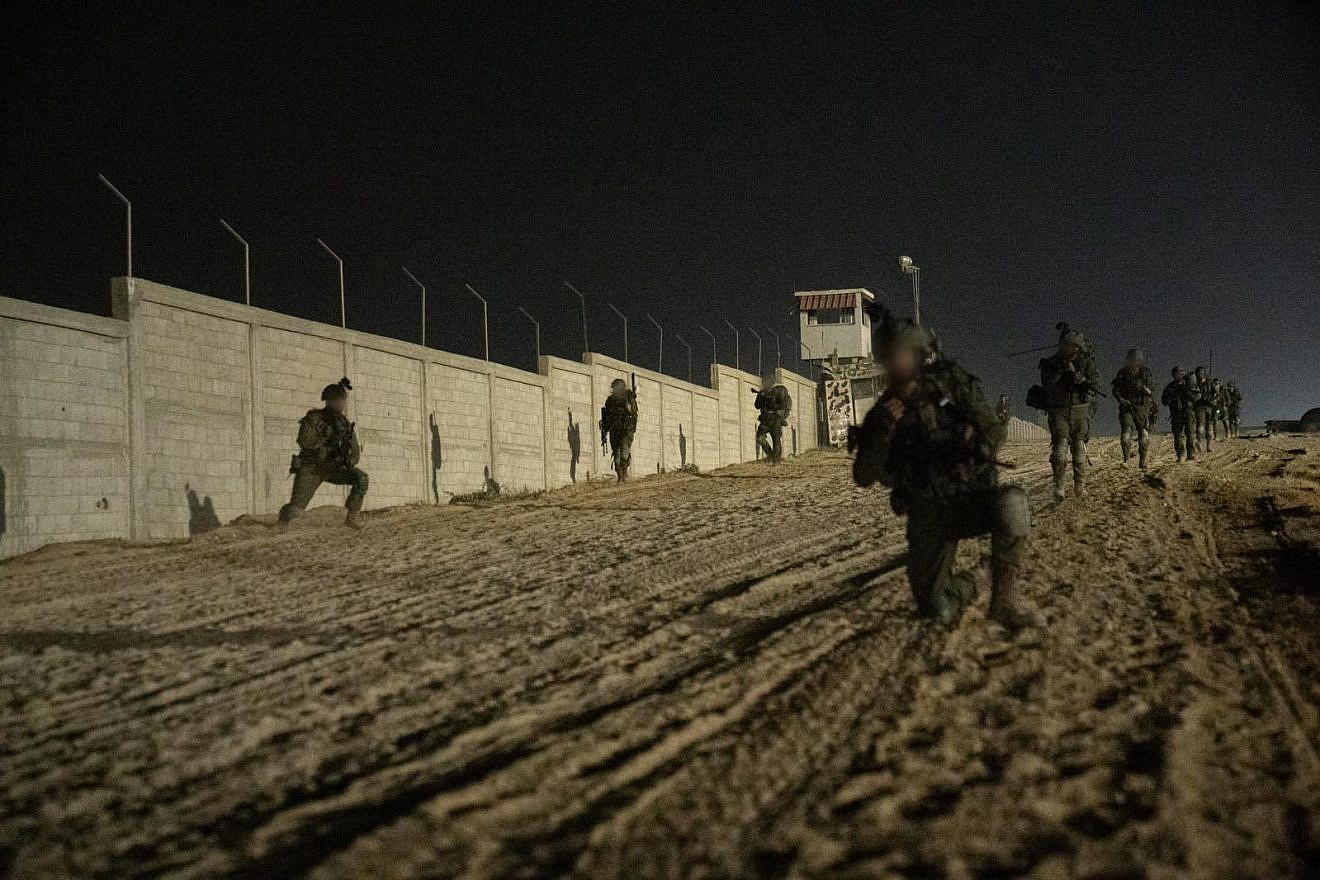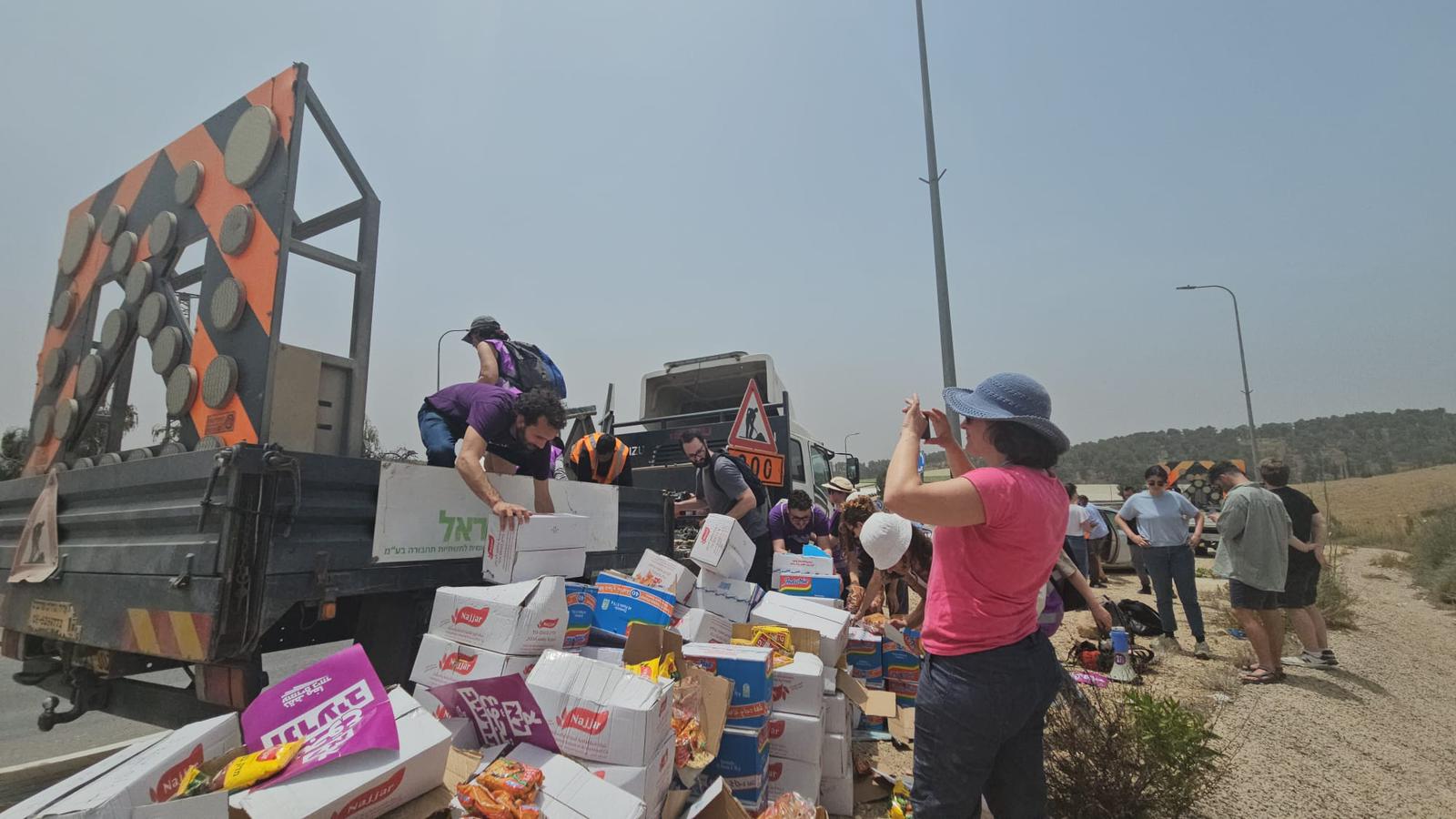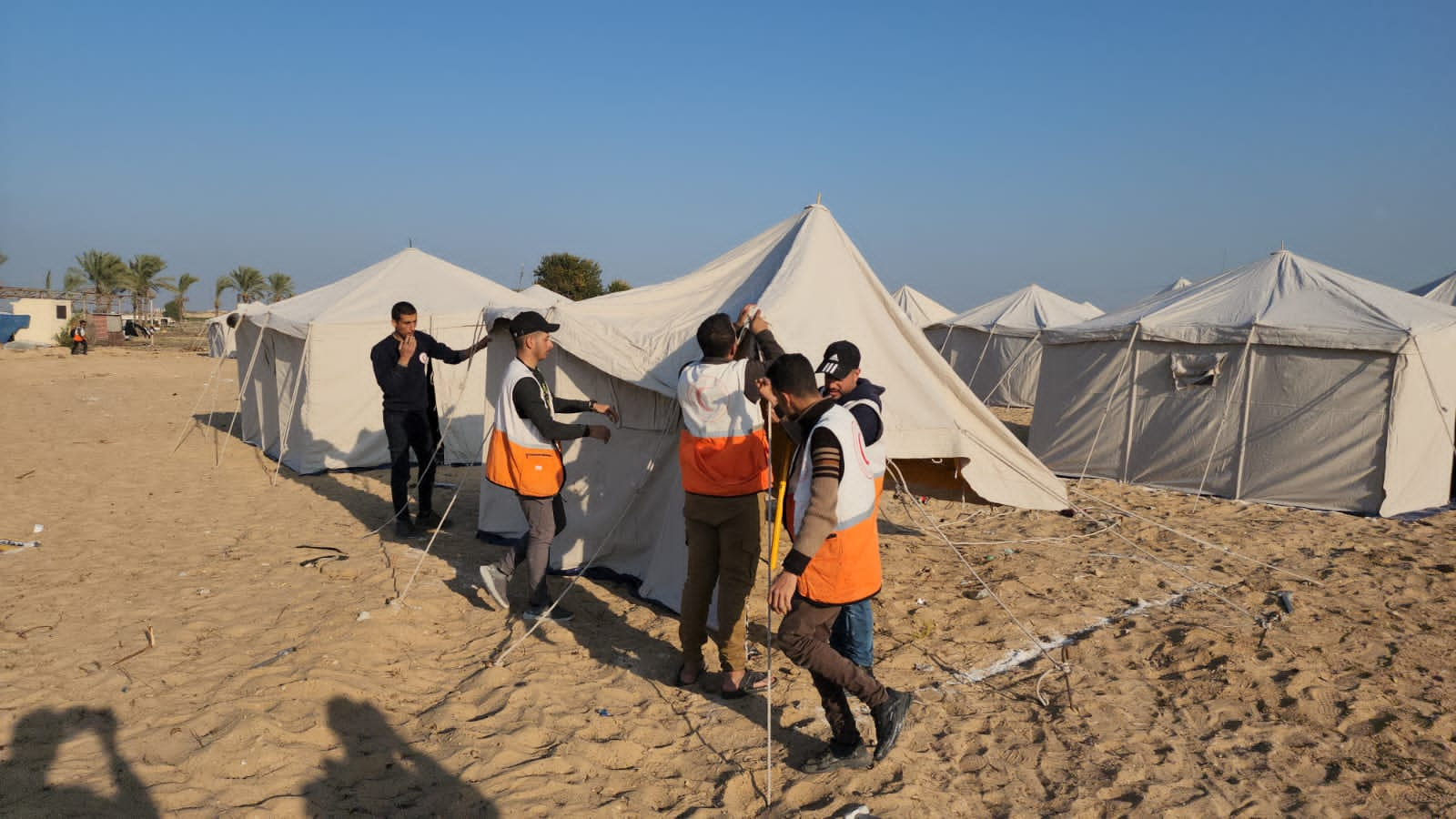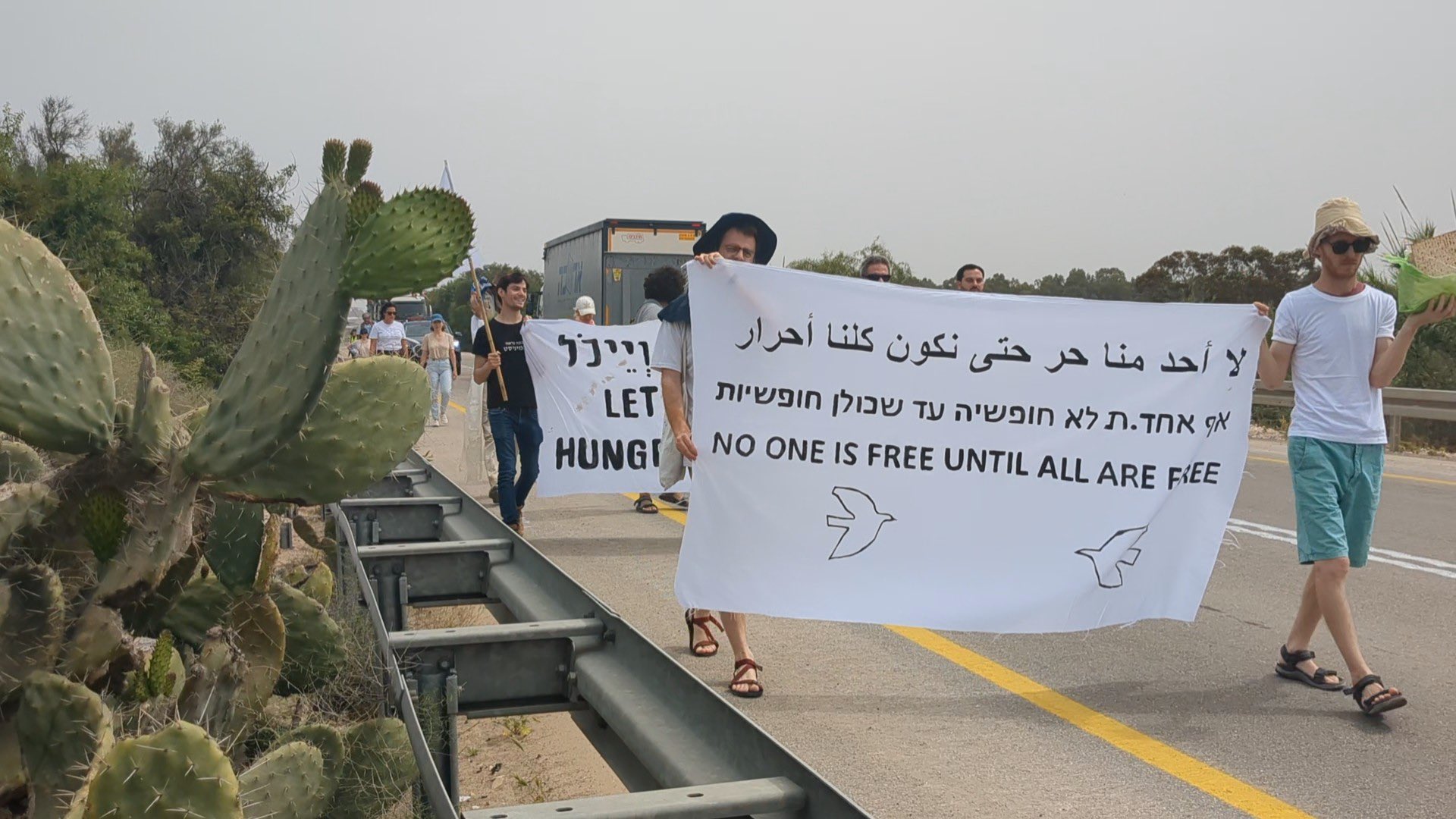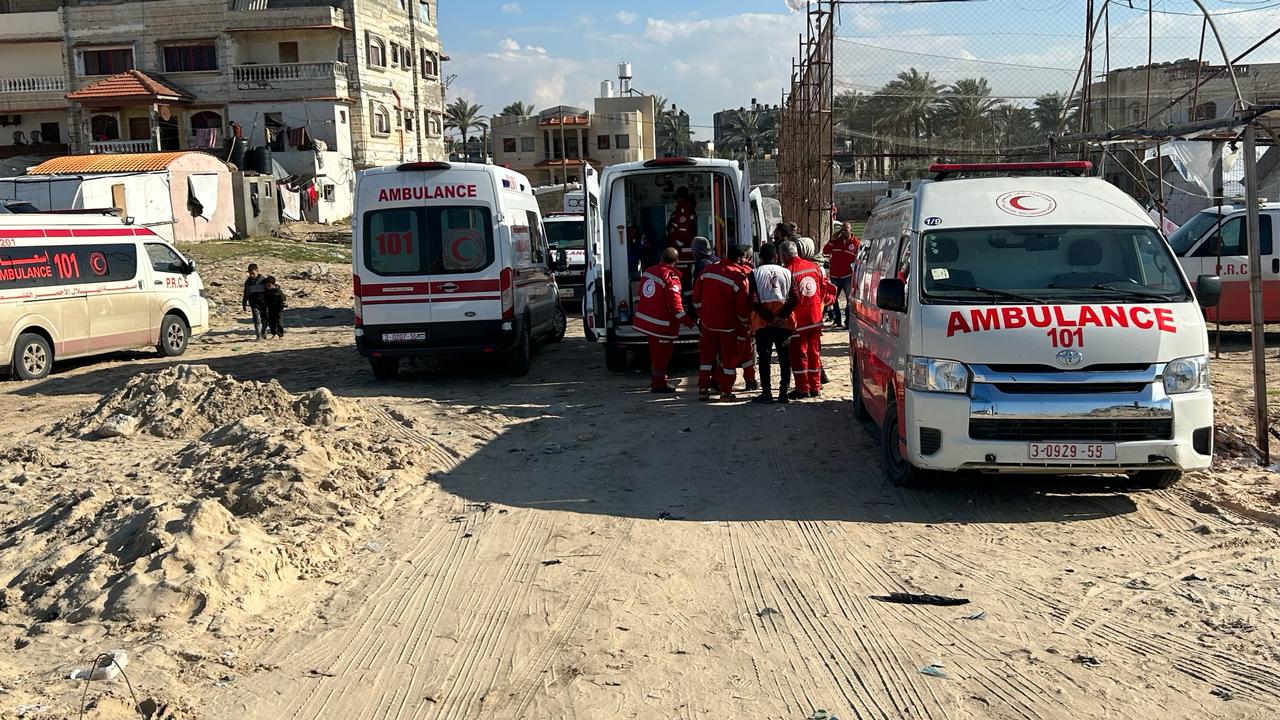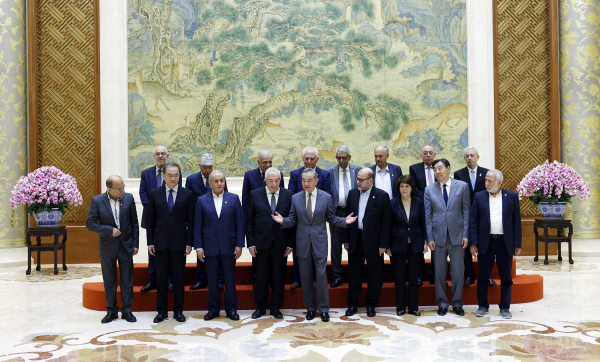
Fatah and Hamas sign unity declaration in Beijing
Meeting in the Chinese capital, senior leaders from Fatah and Hamas as well as 12 other Palestinian factions signed a joint statement, the “Beijing Declaration to End the Division & Strengthen Palestinian National Unity,” calling for establishment of an “interim government of national reconciliation” with a focus on post-conflict reconstruction of Gaza. Chinese Foreign Minister Wang Yi described the event as an “historic moment for the cause of Palestine’s liberation.” Asserting that “‘Palestinians governing Palestine’ is the basic principle for the post-conflict governance of Gaza,” Wang called for an international peace conference to advance a two-state solution. Israel quickly rejected the agreement, with Foreign Minister Israel Katz saying that Hamas’ rule in Gaza “will be crushed.” (Photo: PRC MFA)



